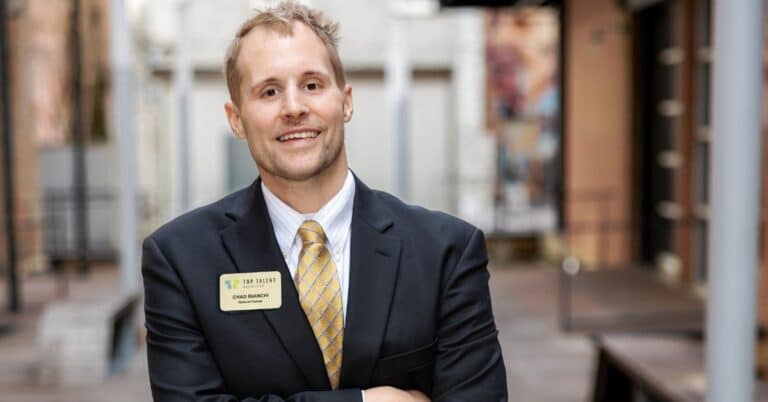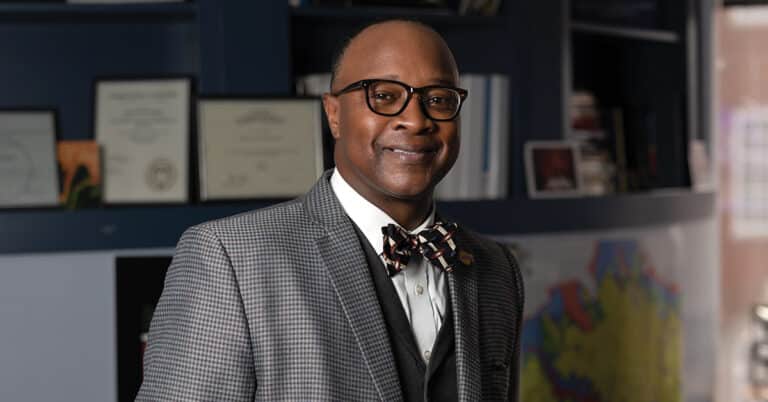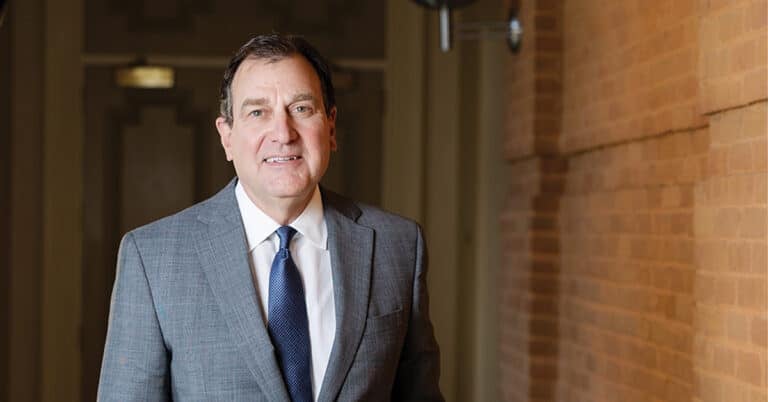As Business Development Partner at Top Talent Recruiter, Chad Bianchi has been helping local businesses conquer the challenge of finding the right team members to fill key positions for the last six years.
Chad Bianchi is no stranger to team dynamics or obstacles; every day, the former student athletic trainer for the University of Alabama football program overcomes the hurdles of living with a neurological disease. Bianchi opened up about what he’s faced, how he’s pushed through struggles to find success and why he hopes his story inspires others. Plus, he offered insight on the No. 1 skill all employers are always after.
What do you enjoy about talent recruitment?
I earned a healthcare management and biology degree, and I also have my MBA, but when I took this job, I was a novice in the position for sure. But, I’ve really taken to it and seen so many doors opened by it. And it’s allowing me to make good use of many of the skills I’ve gained through the years, including things I’ve learned dealing with my disease.
What is CLIPPERS disease, and how has it affected your career?
It’s an autoimmune disease that affects my cerebellum and therefore, affects my walking and my speech. It’s similar to Parkinson’s in some of its symptoms. It started in 2007, when I was 23. I was doing an internship in Providence, Rhode Island, and was at a Red Sox game. I remember looking up at a bird and getting really dizzy. That was the first sign. It took seven years to finally get an accurate diagnosis, but I have improved so much since, and I think I will continue to get better.
What keeps you pushing through and past the challenges it brings?
My faith. I know that God is still working in me, and I believe my progress will continue, so the successes I’ve already had keep me going. There is a lot out of my control, so I take control of what I can, and I give the rest to God. He’s surrounded me with so many great people who push and encourage me.
One neat thing is finding MANE (Montgomery Area Nontraditional Equestrians). I am a big proponent of its therapy using horses; it’s really helping people like me. I’ve participated in the therapy and have also been able to give back to MANE. I think a lot of people here are unaware of its amazing work, so if I can give a voice to what they are doing, that’s a win. Things like that keep me believing I am where I am supposed to be. It’s not what I had in mind; it wasn’t my plan, but I know it is right.
How did your time as an athletic trainer at UA impact you?
I loved getting to travel around the country and loved fostering relationships with all the players and the staff. God’s favor was on me at that time for sure; I formed friendships that mean so much. To this day, I still lean on some of those relationships.
What motivated you to write your book, “The Crimson Dream,” about that experience?
Honestly? Boredom. I knew I had some great, positive stories at Bama that folks would find interesting, some behind-the-scenes stuff. And I felt my perspective as support staff would be a bit different from things written by past players or coaches. So, when I was at therapy in Birmingham, I started writing down what I’d learned and done as a way to kill time. I really didn’t know at first that it would turn into a whole book.
What would you say to encourage others dealing with a disability?
Don’t give up. It’s cliche but true. And it’s simple but also hard. Those with disabilities can get so down; some even see suicide as an option, but that’s an eternal solution to a temporary issue. Surround yourself with people who are in your corner, who support you and who you can really, honestly talk to. And remember something I’ve learned: Everyone is dealing with something. It may not be as obvious as my struggle, but they are.
What’s the No. 1 thing you advise employers to do to attract and retain talent?
The easy answer is bigger salary, but money is not everything. We spend so much of our day at work, and that means what we pick up there can really affect our entire lives, so people really want a positive culture, a positive environment. And flexibility; most people don’t want to be micromanaged.
What is the most sought-after skill today’s employers are after?
Versatility and a broad skill set. If I am hiring you for an administrative assistant position, sure you can do that job, but what if I need to take off for something? Can I rely on you to take on additional responsibilities? Most employers want you to be able to do a little more than what they initially hired you for.
What is your No. 1 piece of business advice for someone just starting out?
The answer to every question you don’t ask is “no.” Never be intimidated by anyone; everyone started somewhere and everyone is approachable. When I was a high school senior, I called and spoke with the head athletic trainer at Alabama and said this is what I’d like to do. He said okay. I got there because I asked.
Personal Matters
Proud Homer:
I’m from Montgomery, and I’ve seen it evolve so much in the past 30 years. The city has so much opportunity and still so much more potential to reach. I’m excited for its future.
Out of Office:
I work a lot, but when I’m not, it sounds a little vanilla, but I do love sports, all sports. I also love learning about other cultures and traveling. I enjoy kayaking, too.






